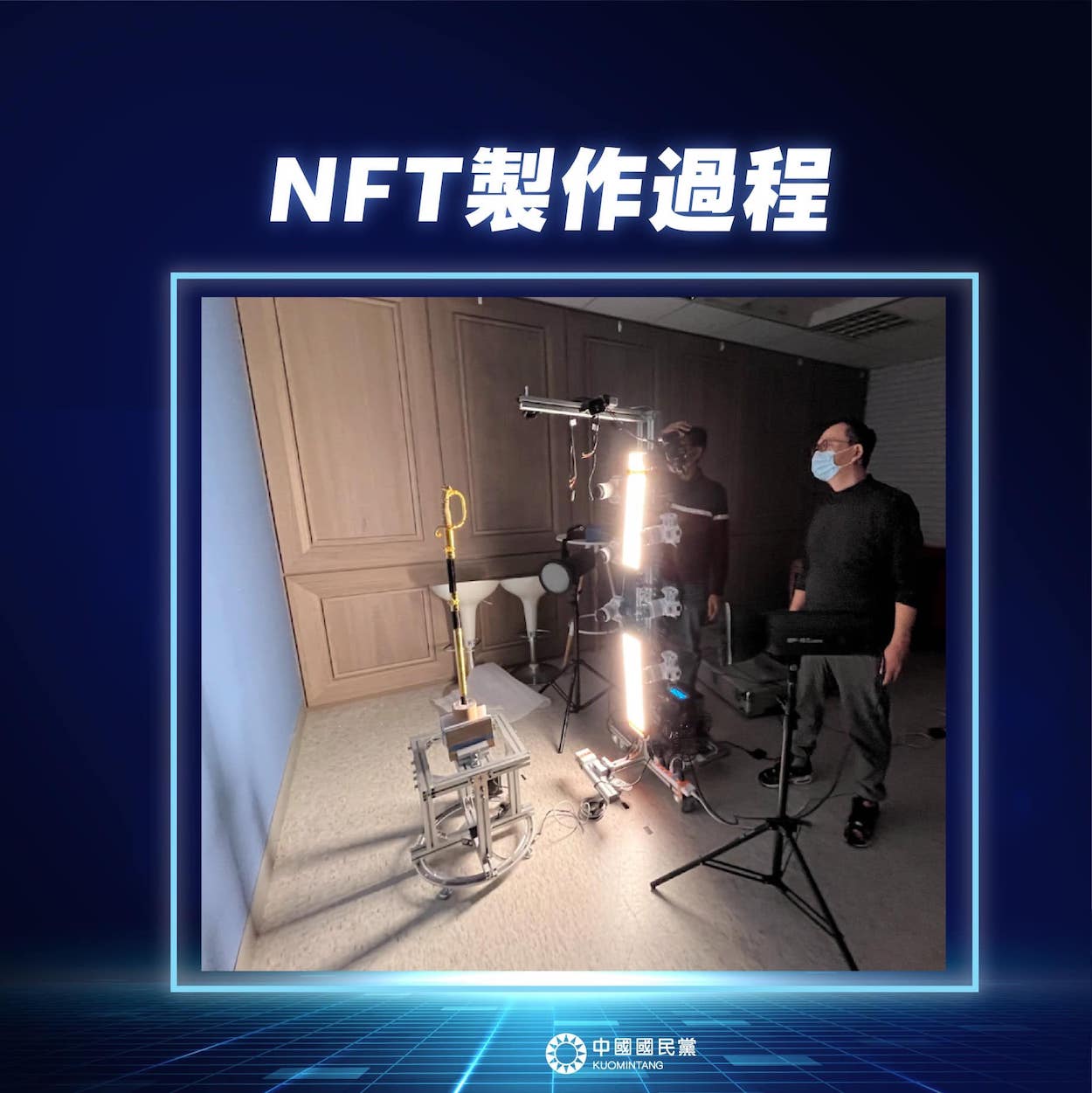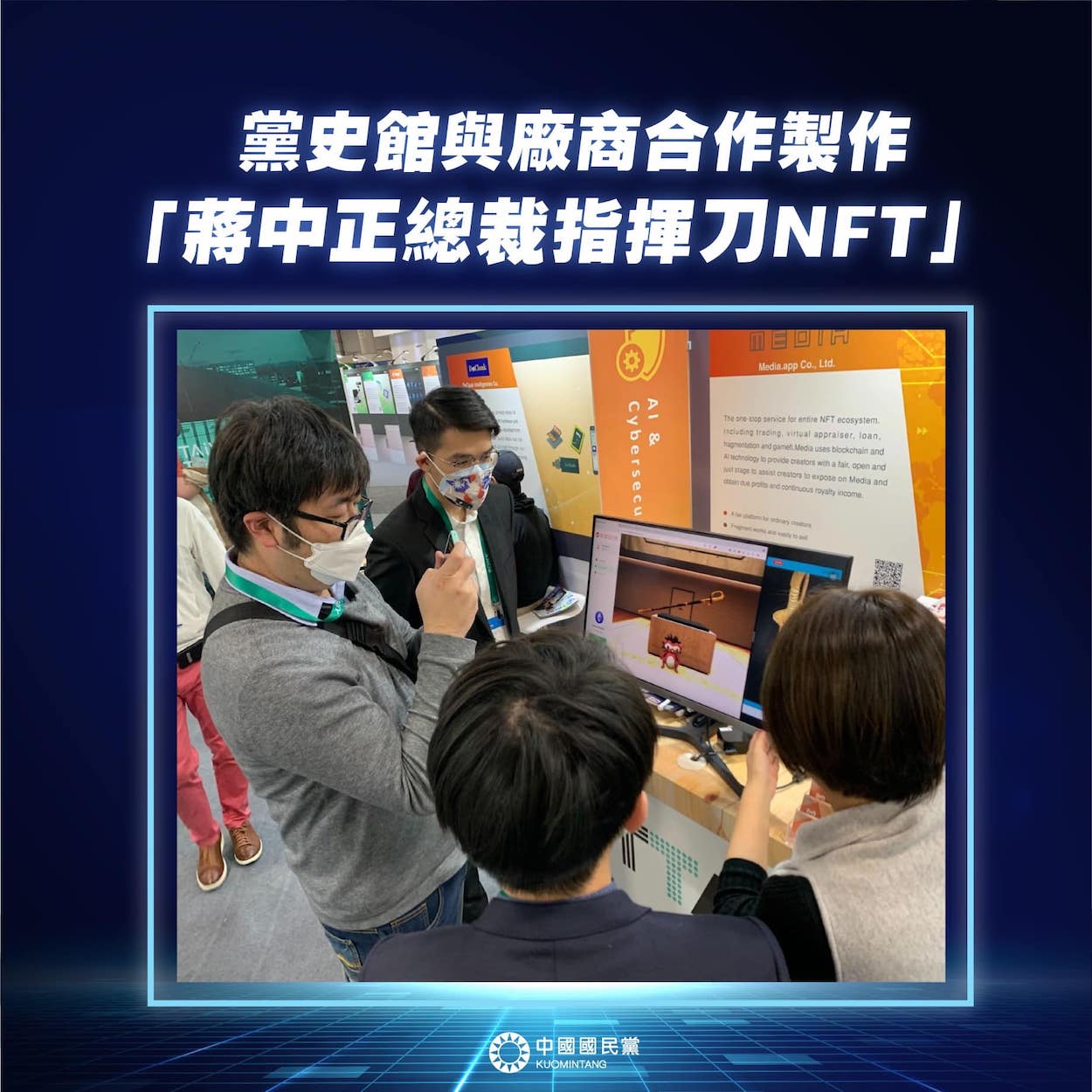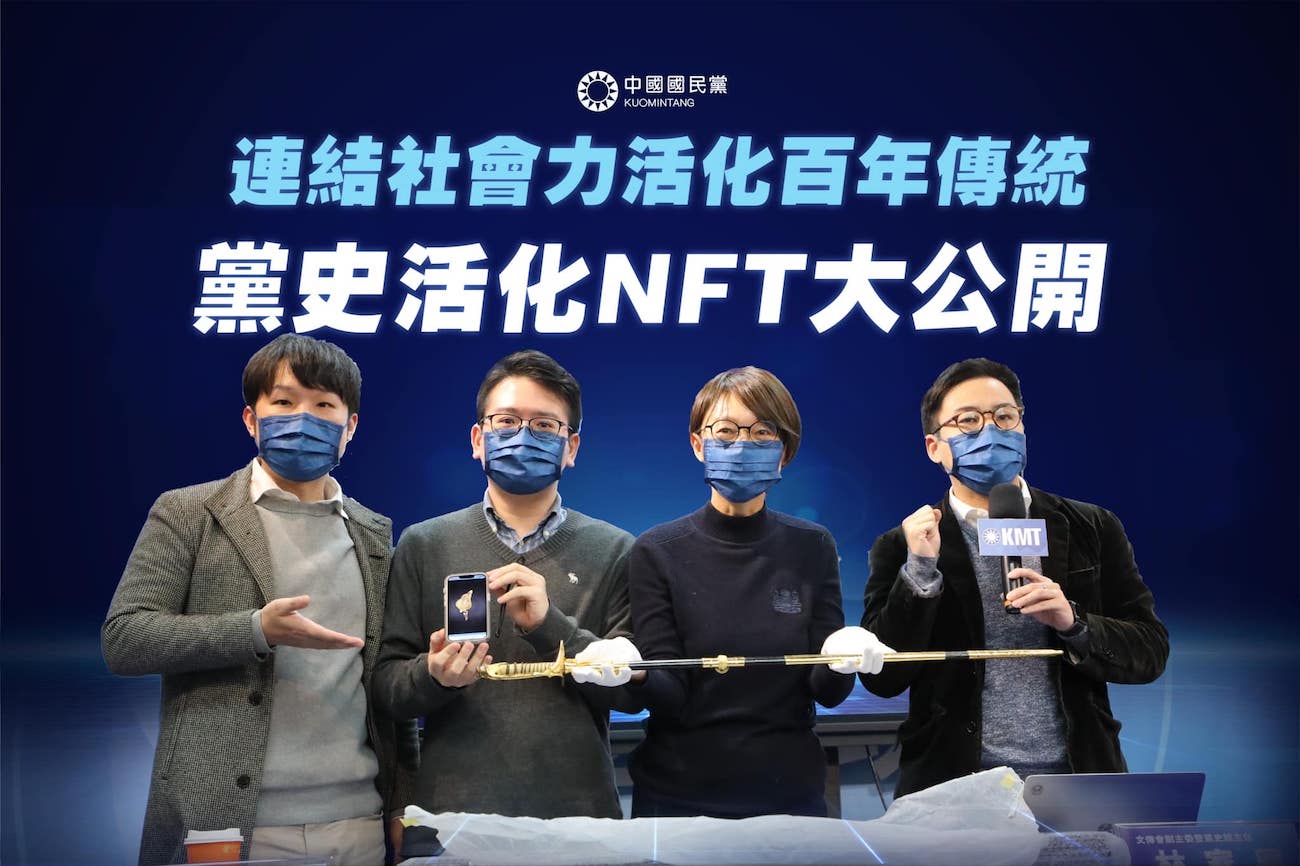by Brian Hioe
語言:
English
Photo Credit: KMT/Facebook
THE LATEST OF the KMT’s desperate attempts to appeal to people proves a funny one–Chiang Kai-Shek NFTs.
More specifically, a recent initiative of the KMT to try and raise funds for the party has been turning a decorative saber owned by Chiang Kai-shek into an NFT. The NFT will then be auctioned off to raise funds. The initiative was fronted by legislator Wu Yi-ting, Lin Jia-xing, formerly the head of the KMT Youth Corps and currently the director of the KMT’s party history division, Peng Shao-fu, the vice president of the ROC Blockchain College Alliance, and Du Ruo-yu and Josephine, both company officials of Media.app Company Limited.

The process of the sword’s digitization. Photo credit: KMT/Facebook
For its part, the KMT claims to have strapped party funds in the present, as a result of the DPP’s probe into illicit party assets retained by the KMT in the present. These party assets primarily originate from property seized by the KMT during authoritarian times, which it continued to hold onto after democratization. Hence the attempt to branch out into NFTs.
This takes place at a time in which NFTs can be quite lucrative in Taiwan. A broccoli NFT from fried chicken store Shiyun recently reached a price of 50,000 USD on Oursong, a platform for buying and selling NFTs.
The KMT’s foray into NFTs is also with the aim of appealing to youth. Many Taiwanese young people–perhaps hoping to make money at a time in which young people subsist on 22K salaries and face the prospect of never owning a home in their lifetimes–have become sucked into the NFT craze.
Yet as has been pointed out by critics, the choice of the saber is ironic. The saber, gifted to Chiang by a San Francisco overseas Chinese organization, has an inscription regarding “embracing the spirit of anti-Communism” in order to “Suppress chaos and establish a nation.” Nevertheless, as the pro-unification party in Taiwanese politics, the KMT has since made its peace with the CCP.

Enthralled youth. Photo credit: KMT/Facebook
Likewise, the KMT rolling out Chiang Kai-shek when the national conversation is focused on issues regarding transitional justice seems in rather poor taste. It is currently debated what should be done with the numerous Chiang Kai-shek statues found in schools and parks across Taiwan, with particular focus on what should be done with the 6.3-meter statue of Chiang Kai-shek in the Chiang Kai-shek Memorial in central Taipei. No surprise, one notes that Wu Yi-ting has been a vocal critic of the Transitional Justice Commission, though one also notes that she is not the only KMT legislator to have been a proponent of blockchain, with former legislator Jason Hsu having termed himself a “Crypto Congressman” during his time in office.
But at a time in which it is debated what should be done with symbols dating from the authoritarian period, the KMT proposes to bring these symbols into the digital age–with a dash of the party’s continual cringeworthy attempts to appeal to young people. Indeed, at a time in which the KMT has been scoffed at for laughable dance videos, tweets that contain the words “Muh Japan,” or wearing high-waisted pants from the last century, perhaps this is what the KMT should try to turn into an NFT–rather than a sword belonging to Chiang Kai-shek. At the very least, while removing the Chiang Kai-shek statues strewn across Taiwan will prove laborious, given the physical weight of the statues, it will prove far easier to dispose of digital NFT files.



